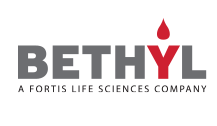Rabbit anti-PARD3 Antibody

Catalog #
PARD3
Human
,Mouse
WB
Rabbit
Polyclonal
Whole IgG
Between 1306 and 1356
IgG
Unconjugated
Antigen Affinity Purified
Product Details
Mouse,
Human
Rat
Human
2 - 8 °C
1 year from date of receipt
Partitioning defective 3 homolog (Par3) is an adapter protein involved in asymmetrical cell division and cell polarization processes. It seems to play a central role in the formation of epithelial tight junctions and targets the phosphatase PTEN to cell junctions (By similarity). Par3 association with PARD6B may prevent the interaction of PARD3 with F11R/JAM1, thereby preventing tight junction assembly. The PARD6-PARD3 complex links GTP-bound Rho small GTPases to atypical protein kinase C proteins. Par3 is required for establishment of neuronal polarity and normal axon formation in cultured hippocampal neurons [taken from the Universal Protein Resource (UniProt) www.uniprot.org/uniprot/Q8TEW0].
Alternate Names
ASIP; atypical PKC isotype-specific interacting protein; Atypical PKC isotype-specific-interacting protein; Ba; Zbazooka; CTCL tumor antigen se2-5; PAR3; PAR-3; par-3 family cell polarity regulator alpha; par-3 partitioning defective 3 homolog; PAR3alpha; PAR3-alpha; PARD-3; PARD3A; partitioning defective 3 homolog; PPP1R118; protein phosphatase 1, regulatory subunit 118; SE2-5L16; SE2-5LT1; SE2-5T2
Applications

